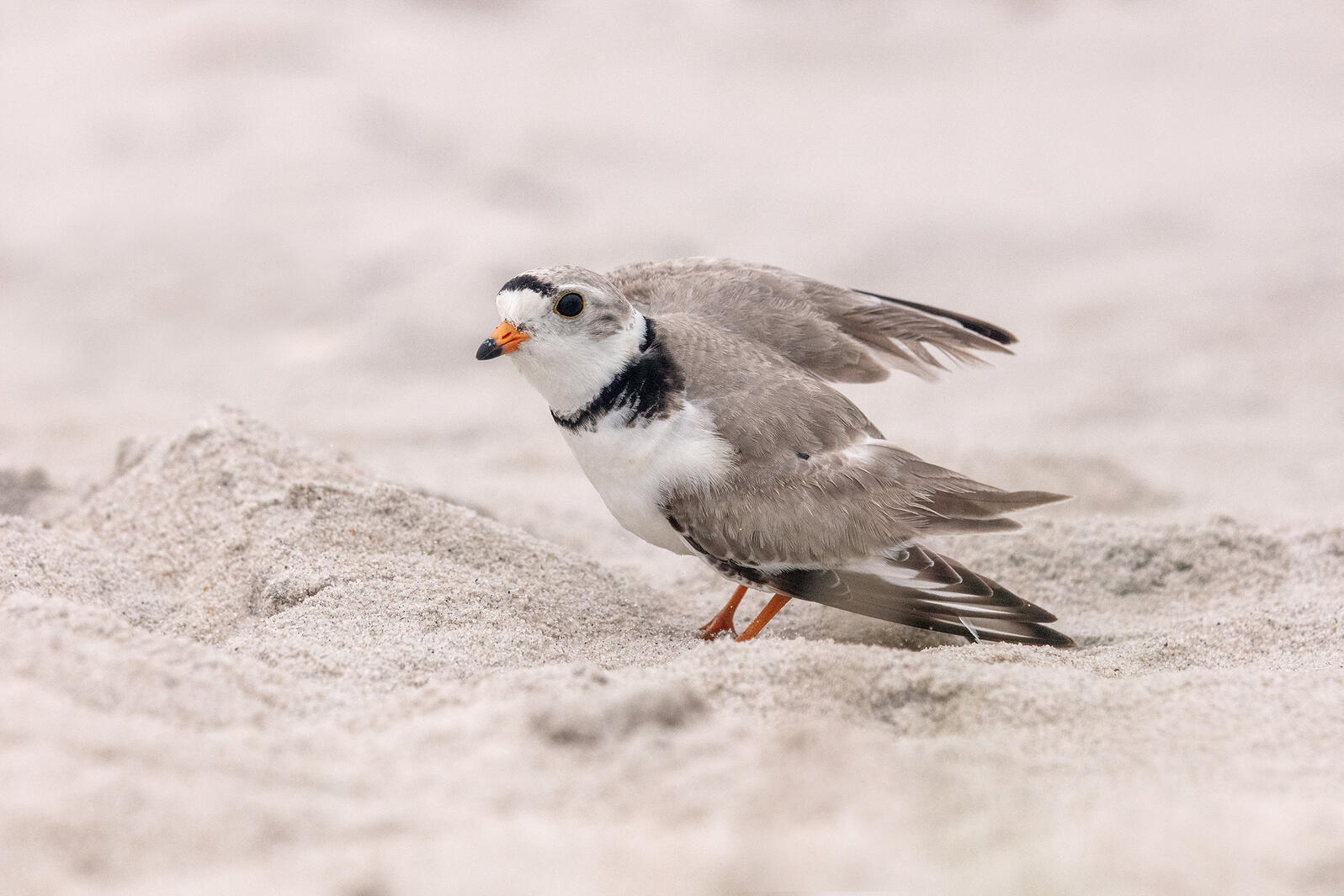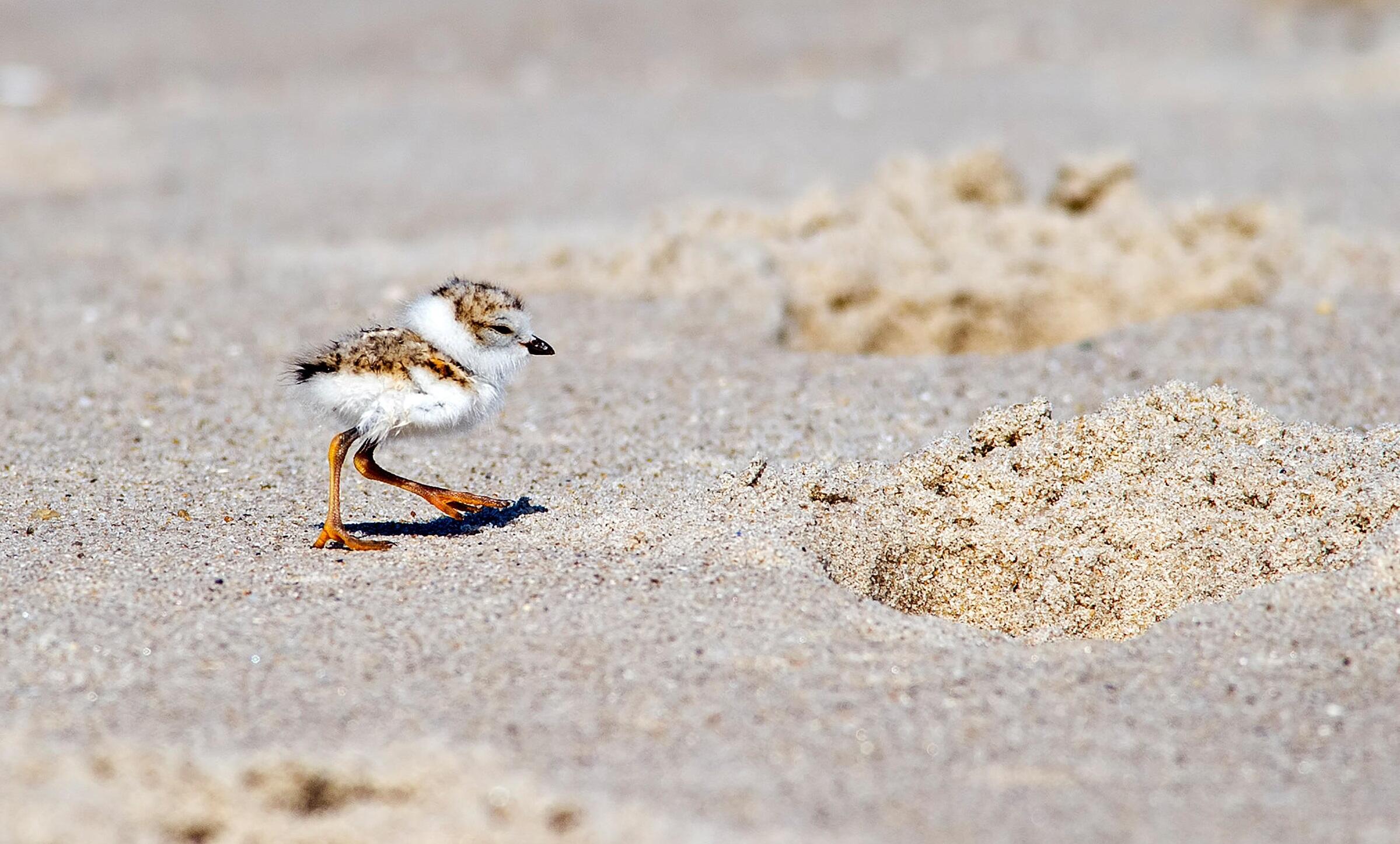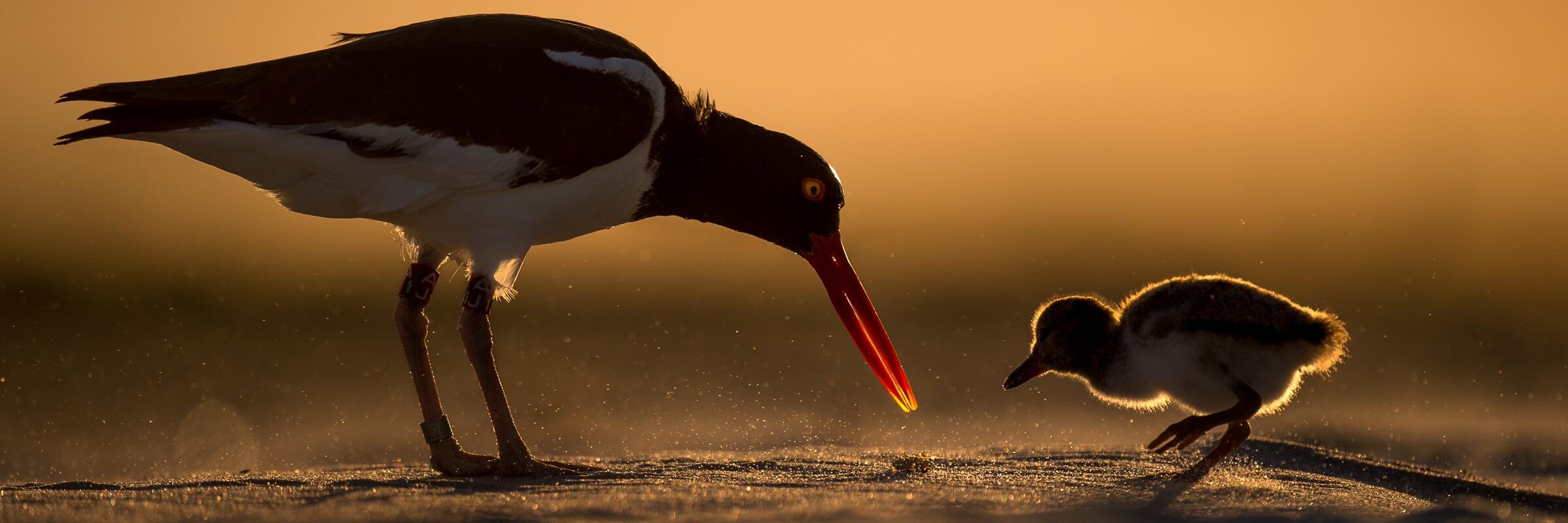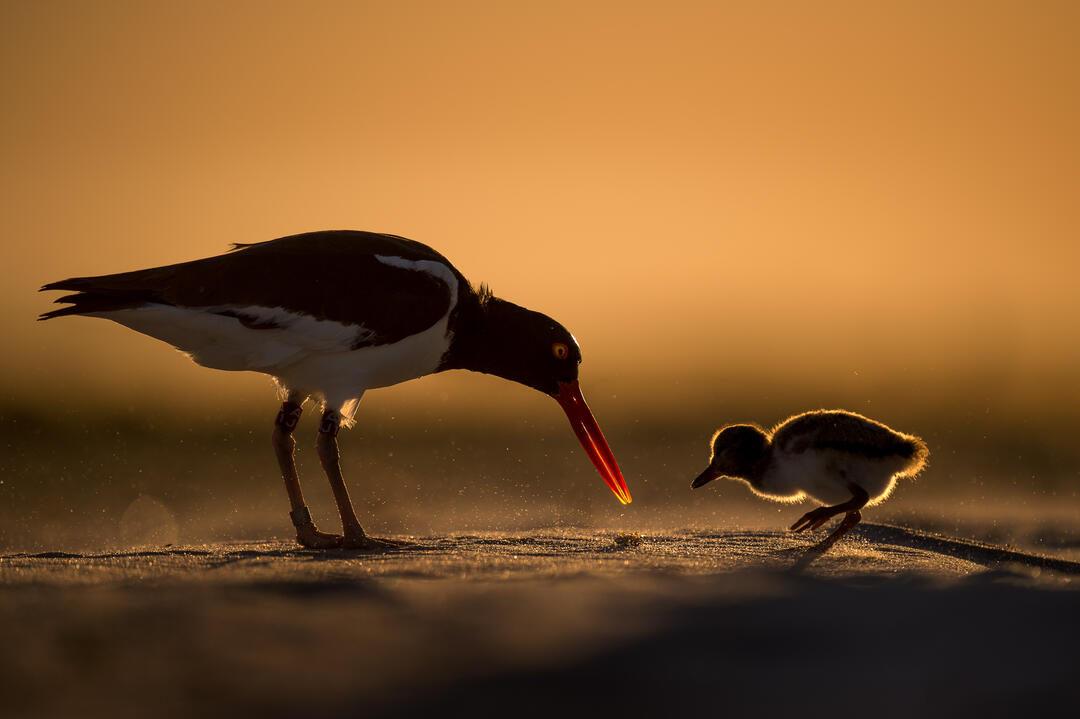During the spring and summer, Connecticut's beaches become a nursery for federally and state-protected birds like the Piping Plover, Least Tern, and American Oystercatcher.
The Atlantic Flyway Shorebird Initiative defines human disturbance of shorebirds as "a human activity that causes an individual or group of shorebirds to alter their normal behavior." Disturbances impact a bird’s ability to raise chicks on the beach - leaving chicks and eggs vulnerable to predators, crushing under foot, or overheating by the summer sun.
There are a variety of behaviors birds display when they feel threatened. Understanding them will make you a more responsible beachgoer.
Take the Be a Good Egg Pledge!
Top Signs Shorebirds Are Being Disturbed:
Broken-wing Display
- Some species, especially plovers, may feign injury.
- Broken wing display acts as distraction to lure threat away from nest and chicks.
Dive bombing
- Nesting on the beach leaves them vulnerable to predators.
- Get too close and they will dive bomb (and poop on you) to protect their nests.
Vocalizing
- Defense often starts with warning calls to alert chicks.
- If you notice birds circling noisily over your head, you may be near a nesting colony.

Tips for Not Disturbing Shorebirds:
- Give nesting birds at least 100 feet of distance if the space allows.
- Respect the fences and signs, and stay outside of areas roped off for breeding shorebirds.
- If pets are permitted on beaches, keep them leashed and away from birds. Even on a leash, dogs are perceived as predators by nesting birds, sometimes causing adults to flush at even greater distances than pedestrians alone.
- Remove trash and food scrapes, which attract animals that might eat shorebirds’ eggs and/or chicks.
- Do not drive on beach dunes or other nesting areas.
- Never walk through an area where you see birds feeding, resting, or nesting.

As tempting as it might be to get a close look at the cute chicks, this should be avoided. Even a single disturbance can cause adult birds to leave their nests and abandon their chicks, which can make the chicks and eggs vulnerable to predators and overheating.
Be a responsible beachgoer and bring your binoculars or a zoom lens camera and admire the shorebirds from a distance.









